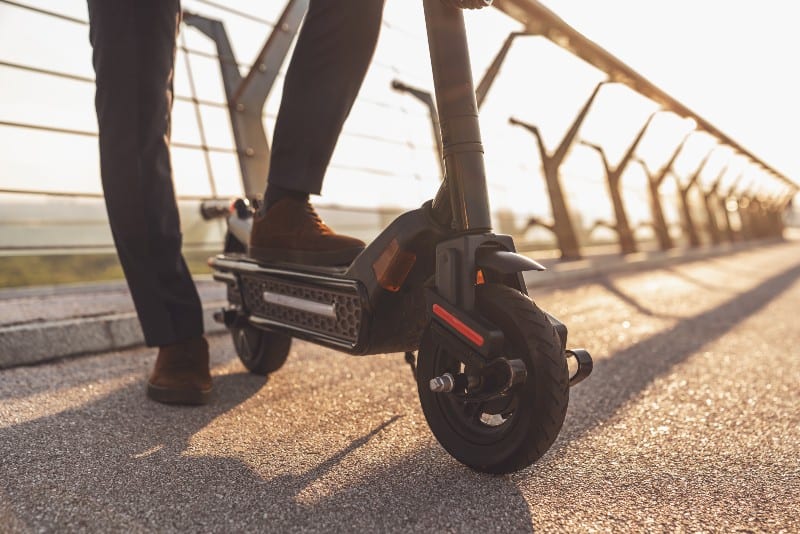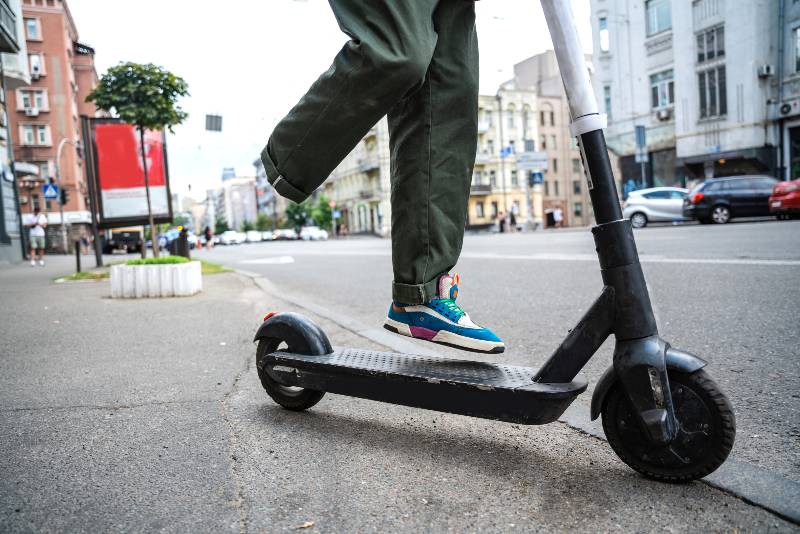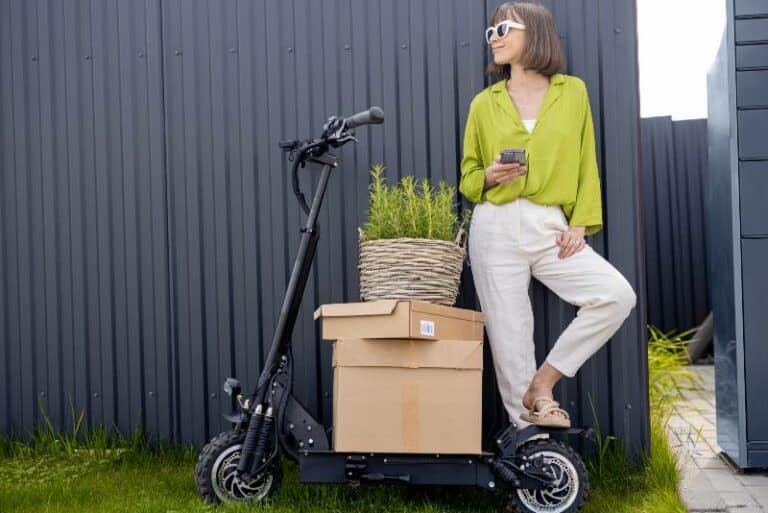Green Wheels: Electric Scooters for a Sustainable Future
With electric bikes, you can encounter the delight of quicker travel without adversely affecting our planet. In addition to the fact that they are prudent and proficient assets that discharge no poisons – ideal for your everyday drive! Sadly, individuals haven’t exploited these astounding advantages however much we’d trusted; ideally, this will change soon.
In this blog entry, how about we jump into the fate of manageable transportation – electric bikes?
We’ll take a gander at their supportability advantages and security highlights while thinking about how they can lessen metropolitan blockage. Besides, we’ll inspect the stuff to make them a practical driving choice around the world.
Electric bikes are revolutionizing the way we travel while helping to keep our planet healthy. By using sustainable sources of power, you can reach your destination with zero emissions and help reduce greenhouse gas pollution for cleaner air. Enjoy a greener future by taking advantage of maintainable versatility today!
Key Takeaways
- Crafting a well-rounded e-bike program is essential to the livelihood of our urban communities. By working together, stakeholders have the power to design comprehensive guidelines that promote safety and responsibility while utilizing efficient electric bikes.
- To bolster this initiative further, investing in an extensive network featuring bicycle paths and stop zones can drastically improve transport between multiple modes for all customers.
- Electric scooters have a bright future, and with more sustainable transportation on the go, we should also do our part in supporting these programs.

Benefits of Electric Scooters
Lower carbon emissions
According to an article in Forbes, using electric scooters can greatly reduce carbon emissions and is a sustainable mode of transportation. One study estimates that scooters are more than 1,000% more efficient per mile than the average combustion vehicle based on the energy needed to move them. Even if e-scooters’ batteries are powered by a grid that relies on fossil fuels, the emissions per mile from the electricity generation are negligible.
Choosing to ride an electric scooter instead of driving a car for short trips and daily commutes can help reduce your carbon footprint and support the global fight against climate change. Making e-scooters your main mode of transportation for short distances can encourage a more eco-friendly and sustainable future.
Reduced traffic congestion
Two recent studies suggest that e-scooters have a positive impact on the environment. The first study, published in the journal Nature Energy, found that micro-mobility devices like electric bikes and e-scooters are effective in reducing traffic congestion and carbon emissions in urban areas.
The study was done because e-scooters were banned in Atlanta after several car accidents involving them. However, the researchers found out that these scooters save an average of 17.4% of travel time annually across the country.
“We suggest that cities must invest more in physical and digital infrastructure in order to promote the use of micro-mobility and reap its benefits for sustainability.,” the researchers wrote.
Long-term planning is necessary to manage physical infrastructure, land use, and space allocation effectively. A suggested approach to achieve this is by transforming car lanes into bike lanes, which can also support micro-mobility.
According to a study conducted by Germany’s Fraunhofer Institute for Systems and Innovation Research, commissioned by Lime, a company that produces e-scooters, the latest models of e-scooters are among the least polluting transportation options currently available.
Cost-effective transportation
Commuting via e-bike can bring major savings in your wallet, allowing you to invest more resources towards other areas of life. Not only are fuel and parking expenses eliminated; upkeep is minimal compared to cars too, with no need for taxes or insurance payments – all while avoiding the dreaded congestion charge!
Encouraging multi-modal transportation
Electric scooters are a practical and fun way to travel, while also promoting green living. Utilize them as your last-mile solution by taking public transportation most of the way and then hopping on an e-scooter for that final stretch – you’ll save time, and money AND be doing right by our environment! Not only can it reduce traffic on roads but increase air quality too, plus they require little maintenance so you won’t have any small problems holding up your journey. And nothing beats getting some fresh air out in nature when enjoying a smooth ride around town!
Challenges and Considerations
Safety concerns
The increasing number of e-scooters on roads and sidewalks in the U.S. has resulted in several positive changes, such as more chances for exercise, better transportation options that are cost-effective, and favorable impacts on the environment and economy.
Riding e-scooters has benefits, but it also poses safety challenges. To ensure the safety of riders, we need to address regulatory, infrastructure, and educational gaps.
Those are some of the main highlights of a new report, E-scooter Safety: Issues and Solutions, released earlier this month by the Transportation Research Board (TRB), intended to help navigate safety issues.
The new resource discusses the safety issues that have emerged with the increasing use of e-scooters and describes measures that cities are taking to prevent and reduce injuries.
Infrastructure requirements
Electric scooters are quickly becoming a popular form of transportation, but it’s important to plan ahead for the infrastructure and safety requirements needed. Finding reliable charging stations along with evaluating road risks should all be factors taken into account before using electric scooters as part of your transit strategy. With thoughtfully crafted plans in place though, these eco-friendly vehicles can bring great benefits – offering an efficient way to get around town without having to worry about emissions or stress!
Electric scooters are becoming increasingly common, but sustainability is still a concern. However creative solutions like green manufacturing and proper battery disposal can help reduce the environmental impact of electric scooter use.
Legal and regulatory issues
Although electric scooters are an exciting new mode of transportation, it is important to be aware of the challenges and considerations. An issue that stands out is the legal and regulatory environment surrounding electric scooters. Some cities enforce strict regulations, while others have not yet addressed this issue. This can cause confusion and uncertainty for both scooter companies and riders.
By collaborating with local authorities and promoting reasonable regulations, we can overcome the challenges posed by electric scooters. It’s crucial to ensure their safe and responsible integration into our urban environments as their popularity increases.
Case Studies of Successful Electric Scooter Programs
City-specific examples
E-scooters are becoming popular in Norway as the country prioritizes sustainability and a high quality of life for its residents, following in the footsteps of other Scandinavian nations such as Sweden and Denmark.
France
The French government has updated its laws regarding electric scooters to enhance safety on the roads. Individuals are prohibited from using e-scooters that go beyond the speed limit of 25 km/hour. If someone owns a higher-powered e-scooter, they will be fined 1500. Using private scooters on the pavement is illegal. Your purchased scooter must have front and backlights, a bell, a braking system, and reflectors.
Singapore
Many cities around the world, including Singapore, have seen electric scooters rise in popularity as a means of transportation. Despite this, the Singaporean government sees the need to prioritize the safety of pedestrians and other commuters while still acknowledging the convenience of electric scooters.
That’s why strict laws are in place to regulate these battery-powered vehicles. The Land Transport Authority carefully considers and approves each electric scooter model before it can be purchased, and there are restrictions in place regarding their speed and weight. While these laws may seem too limited, they have helped ensure a successful and safe electric scooter program in Singapore.
The Future of Electric Scooters
Technological advancements
The of e-scooters depends on the battery, which affects charging time, distance, and overall usage.
As e-scooter technology continues to progress, riders can expect better battery performance and longer lifespan from their e-scooters. As reported by Reuters, more e-scooter rental companies might consider using interchangeable batteries. This is because detachable batteries can make it easier for companies to replace batteries promptly and make the e-scooters more convenient for commuters to use.
Expansion of sharing services
As electric scooters continue to gain popularity, we can look forward to exciting advancements in the future. One of the most promising developments is the expansion of sharing services. With more and more companies entering the market, consumers can access electric scooters at the touch of a button. This will not only increase convenience but also reduce traffic congestion and emissions. Additionally, the sharing model allows people to try out different models and brands without committing to purchasing one themselves. As we move towards a more sustainable future, the future of electric scooters is bright, and we can’t wait to see what’s in store.
Integration with smart city initiatives
Electric scooters are becoming a popular and eco-friendly mode of transportation with the rise of smart cities. Equipped with innovative technologies and AI, these scooters have the potential to revolutionize urban mobility, providing a sustainable and efficient solution.
Electric scooters are becoming increasingly popular among city dwellers due to their ability to address issues such as traffic congestion and promote eco-friendly transportation. As cities focus on smart transportation solutions, electric scooters are expected to play a significant role in shaping the future of our urban areas.
Electric Scooters As A Sustainable Transportation Option FAQs
What infrastructure is needed to support electric scooters?
According to the study, e-scooter riders should use separated or protected bicycle lanes instead of sidewalks. This will reduce injuries, discourage riding on sidewalks, and provide more comfort for riders.
How are cities regulating electric scooter usage?
Cities are taking proactive steps to manage their e-scooter population with either fixed or dynamic fleet caps. Not only is it important for local governments to consider the number of scooters allowed on their streets, but also where these vehicles can be ridden and parked – this helps ensure pedestrians remain safe from potential accidents in public areas like sidewalks.
Can electric scooters be integrated with other modes of transportation?
Yes! With electric scooters forming an integrated part of the transportation mix, commuters can find their way to any destination in no time. By leveraging public transport alongside bike-sharing and car-sharing services, traveling has become easier than ever before!
What are some successful electric scooter programs worldwide?
Singapore has taken a proactive and innovative approach to transportation with the successful launch of its electric scooter program. As part of this initiative, riders must register their motorized vehicles and obtain an appropriate license for use on public roads – all while ensuring enhanced safety features such as foot brakes and side reflectors are equipped.
How is technology improving electric scooters and their adoption?
Electric scooters are taking the world by storm, and with advancements in technology they’re only getting better. From built-in GPS navigation for easier wayfinding to more reliable battery solutions, electric scooter riders have access to an improved range of options designed for speed and safety. Now you can take your ride up a gear!
Conclusion
Electric scooters are becoming increasingly popular, offering a greener alternative to traditional transportation. Make the most of your daily commute and reduce CO2 emissions by embracing this cutting-edge transport trend! Electric scooters offer a convenient, affordable, and eco-friendly way to get around town. With features like lightweight frames, foldable designs, and long-range batteries, these scooters are the perfect choice for urban dwellers looking to cut down on their carbon footprint.
Stay up to date on all things eScooter with our newsletter – join us as we tackle climate change one sustainable innovation at a time. Let’s create better cities for future generations together!






